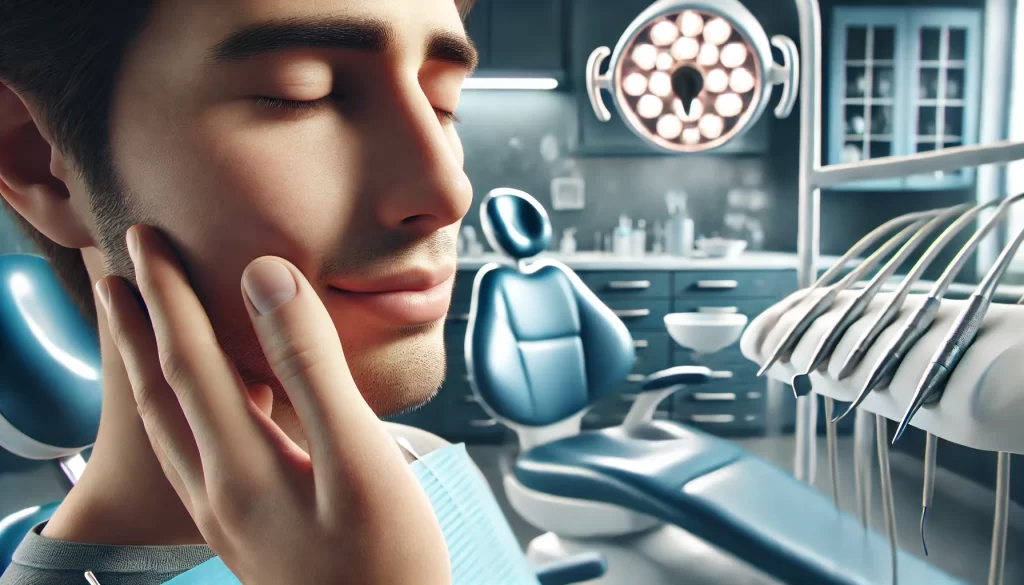Table of Contents
Dental fillings are a common procedure, but many people wonder: How long does numbness last after filling? In this article, we will answer this question in detail, providing clarity for anyone experiencing numbness after visiting the dentist. Understanding what to expect can ease your worries and help you plan for recovery. Let’s dive into the surprising truth about post-filling numbness and how to manage it.
What Causes Numbness After a Filling?

When you receive a dental filling, your dentist usually uses local anesthesia to numb the area around the tooth being treated. This is done to prevent pain during the procedure. After the filling, the numbness can last for a while because the anesthesia temporarily blocks nerve signals in that area. So, if you’re wondering how long does numbness last after filling, it’s because the anesthesia is still working to keep the area numb.
Types of Anesthesia Used in Fillings
- Lidocaine: This is the most common type of local anesthesia used by dentists. It works quickly and is effective for most dental procedures.
- Articaine: A stronger anesthesia sometimes used for more extensive dental work.
Both types of anesthesia can cause temporary numbness, but the duration depends on several factors, as we’ll explore next.
How Long Does Numbness Last After a Filling?

How long does numbness last after filling? Typically, it lasts anywhere from 1 to 3 hours. However, this duration can vary depending on factors such as the type of anesthesia used, the location of the filling, and your body’s metabolism.
Factors Affecting Numbness Duration
- Type of Filling: More complex fillings may require longer procedures, leading to extended numbness.
- Your Body’s Reaction: Everyone metabolizes anesthesia differently. For some, the effects wear off quickly, while others might feel numb for a longer period.
- Location of the Filling: Fillings in certain areas of the mouth, like the back teeth or near nerves, can cause more prolonged numbness.
Can Numbness Last Longer Than Expected?
How long does numbness last after filling? In some cases, it can last longer than 3 hours. While this is unusual, it’s not necessarily a cause for concern. Here’s why this extended numbness might occur:
Prolonged Numbness: What to Know
- Deeper Anesthesia: If your dentist needed to numb a larger area or use a stronger dose of anesthesia, the numbness could last longer.
- Nerve Sensitivity: Some individuals may have more sensitive nerves, which could take additional time to return to normal after a filling.
- Complicated Procedure: If the filling involved more complex work, such as reaching a cavity near a nerve, the numbness might persist longer.
When to Call Your Dentist
If your numbness lasts for more than 6 hours or you start experiencing unusual symptoms, like severe pain or swelling, contact your dentist. These symptoms could indicate a problem such as nerve damage or an allergic reaction to the anesthesia.
How to Speed Up Numbness Recovery
If you’re eager to get back to normal and wondering how long does numbness last after filling, there are a few things you can try to help reduce the numbness more quickly.
Tips for Reducing Numbness
- Move Your Mouth: Gently moving your mouth and massaging the numb area can help stimulate blood flow, which might reduce the numbness.
- Eat Soft Foods: Stick to soft, cool foods to avoid biting your cheek or tongue while you’re still numb.
- Stay Active: Mild physical activity, like walking, can help boost circulation and speed up the process.
- Apply Warm Compresses: After the numbness starts to fade, applying a warm compress can help increase blood flow to the area.
While these tips might help the numbness go away sooner, it’s important to be patient and allow your body to naturally metabolize the anesthesia.
What to Avoid While Numb
When you’re still numb after a filling, it’s crucial to be cautious with your mouth to avoid injury. Since you might not feel pain as strongly, it’s easy to accidentally hurt yourself. If you’re wondering how long does numbness last after filling, remember that being mindful during this period can help prevent accidents.
Things to Avoid:
- Chewing Hard Foods: Eating while numb can lead to biting your cheek or tongue without realizing it.
- Hot Beverages: Hot drinks like coffee or tea can cause burns because you won’t feel the temperature properly.
- Touching the Numb Area: Poking or prodding the numb part of your mouth can irritate it or prolong the numbness.
Staying cautious will help you avoid any potential harm while waiting for the numbness to wear off.
Also Read: How Long Does LASIK Take? Discover the Fast Path to Clear Vision
Can Numbness Cause Long-Term Issues?
In rare cases, patients worry that the numbness might cause long-term problems. The good news is that in most situations, numbness after filling is temporary and goes away without any lasting effects.
Rare Complications
- Nerve Damage: In very rare cases, dental work close to a nerve can cause lingering numbness or nerve damage. This might take longer to heal or require additional treatment.
- Allergic Reactions: Although uncommon, some individuals may have an allergic reaction to the anesthesia, which could cause prolonged symptoms. If you notice a rash, itching, or trouble breathing, seek medical help right away.
So, how long does numbness last after filling? For most people, numbness lasts between 1 and 3 hours. While it can be a little uncomfortable, it’s a normal part of the recovery process after dental work. Understanding what to expect can ease your mind, and by following the tips mentioned, you can help reduce the numbness and recover more comfortably.
If your numbness lasts longer than expected or if you experience any unusual symptoms, don’t hesitate to contact your dentist. They can provide advice tailored to your specific situation and ensure that your recovery is smooth.
In conclusion, while numbness after a filling is common, it doesn’t last forever. By knowing how long it typically lasts and what you can do to manage it, you’ll be well-prepared for your next dental visit.

